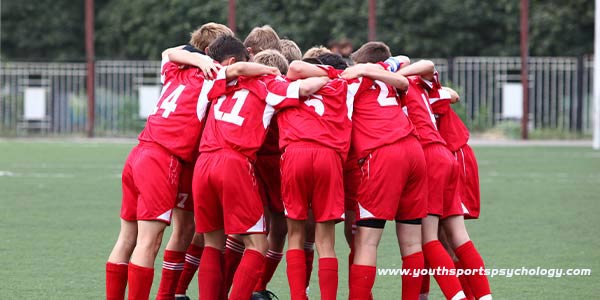Easing Young Athletes Back into Seeing Friends and Teammates
Sports kids may feel anxious about changing the routines they developed during the shutdown, says Elizabeth Englander, a Ph.D psychologist, researcher, professor and author of “The Insanely Awesome Post-Pandemic Playbook.”
However, playing sports is a good way to transition to normal life, she says.
When kids participate in an activity together, it helps them ease back into seeing friends, teammates and coaches.
“The hardest thing for kids right now is standing there looking at a friend you haven’t seen for more than a year,” she says. “I think that sports is a great segway because it’s structured and active.”
In addition to feeling anxious, young athletes may worry that they’ve lost their skills in sports, or that they’ve fallen behind. They believe that people are watching them and judging them if they make mistakes. This type of thinking could result in mistakes and spiral into a drop in confidence.
“But the truth is every kid feels that way,” she says.
Be sure to tell young athletes that others are generally less interested in them than they imagine. “It can help kids to be reminded that other people are not there just looking at them,” she adds.
When kids struggle with this kind of social anxiety, Englander suggests that they focus on themselves, not on what they believe others are thinking.
“I think the anxiety is temporary. The re-entry can be a little rough, but things will begin to feel normal and familiar fairly quickly. Telling them this can help kids understand that they won’t feel like this for the rest of their lives.”
Kids and teens starting new sports teams or transitioning from middle school to high school teams may feel especially challenged. It’s important to tell them that everyone is in the same boat and feeling the same way. Parents should remind them to think about what they’re focusing on.
“We tell kids to stop and think about how they’re thinking.” They may see a friend on a field, and feel excited about it, but wonder whether to say hi or tackle that person to the ground.
They need to remind themselves that everyone is feeling shy and uncertain, and that’s normal.
Young athletes will likely feel better as sports return to normal if they can spend time in groups, which is what sports provides for them, says Englander.
“Teens like to move in packs,” she says.
Listen to the entire podcast with Englander:
Related Articles on Kids’ Mental Game:
- Preparing Young Athletes for Transition in Sports
- How Participating in Sports Gives Kids an Edge in Life
- Helping Athletes Who Question Their Training
*Subscribe to The Sports Psychology Podcast on iTunes
*Subscribe to The Sports Psychology Podcast on Spotify
Improve Your Mental Game From Anywhere In The World

We’re certain that, as a parent, you want to help your child develop confidence and discipline in sports and life. And as a sports parent, you’d love for your children to reach their potential in sports. But encouraging your child to strive for greatness without pressuring them can be a challenge.
You can get expert mental coaching with us from anywhere. Meet with us via Zoom, Skype, FaceTime or phone call. With today’s video technology, we are able to connect with athletes and coaches all over the globe.
Call Us Today to Schedule Your Free 15-Minute Session.
Find Out How Your Athlete Can Benefit From One-on-One Mental Coaching!

